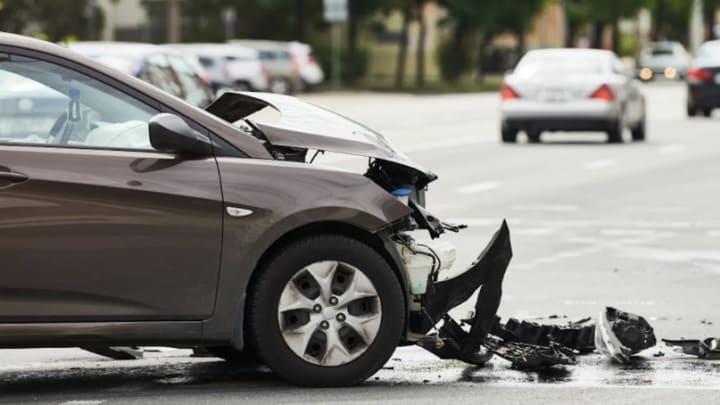Das Auto Abo – Einfach Auto fahren mit FINN
Inklusive Versicherung, Steuer und TÜV
Flexible Laufzeiten für deine Bedürfnisse
Haustürlieferung zum Wunschdatum
Sofort verfügbare (E)-Auto Angebote


Unsere beliebtesten Modelle im Auto Abo
Klarna x FINN: Jetzt 200 € Rabatt sichern!
Vom 17. März bis 17. April 2025 hast du die exklusive Möglichkeit 200 € auf die erste Monatsrate deines neuen Auto Abos zu sparen! Aber Achtung, schnell sein lohnt sich: Das Angebot gilt nur für die ersten 500 Abonnent:innen.
Das Beste daran? Die Aktion ist nicht auf bestimmte Fahrzeuge begrenzt, du kannst dir aus dem breiten Sortiment von FINN dein neues Traumauto aussuchen! Weitere Details zur Aktion findest du in unseren Teilnahmebedingungen.

Klarna x FINN: Jetzt 200 € Rabatt sichern!
Vom 17. März bis 17. April 2025 hast du die exklusive Möglichkeit 200 € auf die erste Monatsrate deines neuen Auto Abos zu sparen! Aber Achtung, schnell sein lohnt sich: Das Angebot gilt nur für die ersten 500 Abonnent:innen.
Das Beste daran? Die Aktion ist nicht auf bestimmte Fahrzeuge begrenzt, du kannst dir aus dem breiten Sortiment von FINN dein neues Traumauto aussuchen! Weitere Details zur Aktion findest du in unseren Teilnahmebedingungen.

Auto Abo Vorteile auf einen Blick

Flexible Laufzeiten
Du entscheidest, wie lange du dein neues Auto fährst. Profitiere von unseren kurzen und flexiblen Laufzeiten.

Zulassung
Wir übernehmen die komplette Anmeldung deines neuen Autos. So kannst du ohne weiteren Aufwand direkt durchstarten.

Individuelle Kilometerwahl
Wähle das Kilometerpaket, das zu deinem Fahrverhalten passt. Falls sich dein Bedarf ändert, kannst du es während der Laufzeit anpassen.

Steuern & Versicherung
Die Kfz-Steuer ist bereits in deiner monatlichen Abo-Rate enthalten und wir kümmern uns auch um deinen Versicherungsschutz.

Wartung & Reifenservice
Wir halten dein Auto in Topform – Inspektionen und Reifenwechsel sind bereits inklusive.

Haustürlieferung
Wir liefern dir dein neues Auto deutschlandweit zu deinem Wunschtermin direkt vor die Haustür.
So abonnierst du ein Auto bei FINN
1. Fahrzeug auswählen
Finde dein perfektes Fahrzeug aus unserem umfangreichen Sortiment und profitiere von unseren flexiblen Abo-Laufzeiten.
2. Buchung abschließen
Schließe dein FINN Auto Abo in weniger als 5 Minuten online ab.
3. Einsteigen & losfahren
FINN liefert dir dein neues Traumauto direkt vor die Haustür, sodass du direkt einsteigen und losfahren kannst.
4. Für immer FINN fahren
Am Ende der Vertragslaufzeit ist dein nächstes Traumauto im Folge-Abo nur zwei Klicks entfernt.

So abonnierst du ein Auto bei FINN
1. Fahrzeug auswählen
Finde dein perfektes Fahrzeug aus unserem umfangreichen Sortiment und profitiere von unseren flexiblen Abo-Laufzeiten.
2. Buchung abschließen
Schließe dein FINN Auto Abo in weniger als 5 Minuten online ab.
3. Einsteigen & losfahren
FINN liefert dir dein neues Traumauto direkt vor die Haustür, sodass du direkt einsteigen und losfahren kannst.
4. Für immer FINN fahren
Am Ende der Vertragslaufzeit ist dein nächstes Traumauto im Folge-Abo nur zwei Klicks entfernt.

Auto Abo vs. Leasing und Langzeitmiete
FINN befindet sich als führender Auto Abo Anbieter genau in der Mitte zwischen der Auto Langzeitmiete und dem Leasing. Mit einer flexiblen Abo-Laufzeit, die länger als eine klassische Mietwagenbuchung, aber deutlich kürzer und anpassungsfähiger als Leasing ist, passt sich FINN genau deinen Mobilitätsbedürfnissen an.
Leasing | Miete | ||
|---|---|---|---|
Versicherung | |||
| Kfz-Steuer | |||
| Günstige Monatsraten | |||
Flexible Laufzeiten | |||
Wartung & Reparaturen | |||
| TÜV & Inspektion | |||
Reifenwechsel | |||
| Zulassung | |||
Auto finden |
Audi, BMW & Co. – Unsere Top-Marken
Die Erfahrungen unserer Abonnent:innen
“Der Service ist schnell und freundlich – ich habe jeden Tag Spaß am Auto!”
Robert B.
Jeep Compass PHEV“Gute, unkomplizierte Alternative zum Leasing”
Vanessa S.
Opel Corsa“Jederzeit wieder: Schnelle Lieferung und planbare Kosten”
Julia K.
Aiways U5“Der Service ist schnell und freundlich – ich habe jeden Tag Spaß am Auto!”
Robert B.
Jeep Compass PHEVEinblicke in die Automobilität: Trends und Studien
Häufige Fragen und Antworten zum Auto Abo
Noch offene Fragen? Dann findest du hier die Antworten auf die meistgestellten Fragen zum Auto Abo von FINN. Weitere Informationen und noch mehr Antworten findest du auch auf unserer Support-Seite.
Ein Auto Abo ist ein Mobilitätsangebot, bei dem du für eine monatliche Rate ein Auto nutzen kannst. Bei einem Auto Abo sind in der monatlichen Rate bereits viele Kosten wie Versicherung, Steuern, Anmeldung, Wartung und TÜV inkludiert.
Ein Auto Abo von FINN ermöglicht es dir, ein Fahrzeug flexibel und ohne langfristige Verpflichtungen zu nutzen. Du musst lediglich dein Modell, das Kilometerpaket und die Laufzeit auswählen, und innerhalb weniger Wochen wird das Auto vor deine Haustür geliefert.
Das FINN Auto Abo bietet dir maximale Flexibilität, Transparenz und Komfort – ohne langfristige Verpflichtungen wie beim Kauf oder Leasing. Du kannst dein Auto nach der Mindestlaufzeit jederzeit wechseln und so spontan auf Veränderungen in deinem Leben reagieren. Dank schneller Verfügbarkeit steht dein neues Fahrzeug innerhalb weniger Wochen vor deiner Tür.
Unerwartete Kosten für Anmeldung, TÜV oder Reparaturen entfallen – alles ist in einer festen Abo-Rate enthalten. So hast du volle Kostenkontrolle und genießt das FINN Rundum-Sorglos-Paket. Nur das Tanken oder Laden bleibt deine Aufgabe.
Der Vorteil eines Auto Abos von FINN liegt in der hohen Flexibilität. Suche dir einfach dein neues Wunschfahrzeug aus unserem großen Sortiment aus und passe die Laufzeit und das Kilometerpaket individuell an.
Dank kurzer Laufzeiten ab nur sechs Monaten musst du dich nicht langfristig an ein Auto binden, wie es beim Autokauf oder Leasing der Fall ist. Das Auto Abo von FINN passt sich ganz deinen Bedürfnissen an.
Außerdem erwartet dich mit jedem Auto Abo das Rundum-Sorglos-Paket: Du musst dich weder um Versicherung, Steuern, Anmeldung, Wartung, TÜV noch Reifenwechsel kümmern. Das übernimmt alles FINN.
Du musst diese Voraussetzungen erfüllen, um ein FINN Auto Abo abschließen zu können:
- Du hast eine Meldeadresse in Deutschland.
- Du bist mindestens 20 Jahre alt (Fahrer:innen unter 23 Jahren können nur Fahrzeuge mit einer maximalen Leistung von 150 kW (204 PS) buchen).
- Du besitzt bei Abschluss deines Auto Abos einen in der EU gültigen Führerschein, der über den gesamten Abo-Zeitraum hinweg gültig ist.
- Du bist im Besitz eines gültigen Ausweisdokuments.
- Du führst im Verlauf der Bestellung die Verifikation mit deinen Dokumenten (Führerschein und Personalausweis) durch.
Anschließend musst du nur noch deinen Führerschein hochladen und die Bonitätsprüfung bestehen. Wenige Klicks später hast du dein FINN Auto in neuwertigem Zustand, das genau dem entspricht, das du dir auf der Website oder in der FINN App ausgesucht hast, bestellt.
Für bestimmte Altersgruppen oder eine kürzere Führerscheingültigkeit können zusätzliche Gebühren anfallen:
- Für Fahrer:innen zwischen 20 und 23 Jahren oder über 65 Jahren fällt eine monatliche Gebühr von 19 € an, unabhängig von der Gültigkeitsdauer des Führerscheins.
- Zwischen 23 und 65 Jahren wird diese Gebühr nur fällig, wenn der Führerschein im EWR weniger als 2 Jahre gültig ist.
In der monatlichen Abo-Rate sind bei FINN alle wesentlichen Fahrzeugkosten enthalten:
- Versicherung
- Kfz-Steuer
- Wartung
- TÜV & regelmäßige Inspektionen
- Reifenwechsel
Darüber hinaus kümmert sich FINN um die gesamte administrative Abwicklung, einschließlich der Zulassung des Autos. FINN bietet dir nicht nur kurze und flexible Laufzeiten, sondern dank des Rundum-Sorglos-Pakets das bequemste und einfachste Auto Abo.
Du kannst ein FINN Auto ganz einfach online abonnieren. Nachdem Du aus unserem großen Sortiment Dein Wunschfahrzeug ausgewählt hast, erfolgt die Lieferung vor Deine Haustür innerhalb weniger Wochen. Du kannst direkt losfahren, ohne Dein FINN Auto an einem festgelegten Ort abholen zu müssen. Wichtig ist, dass Du eine aktive Meldeadresse in Deutschland hast.
Besonders in diesen Städten erfreut sich das Auto Abo von FINN großer Beliebtheit:
Ja, als FINN Abonnent:in kannst du jederzeit und für dich kostenlos zusätzliche Fahrer:innen anmelden und zu deinem FINN Auto Abo hinzufügen. Die Anmeldung erfolgt über deinen Kundenaccount.
Unter dem Menüpunkt “Meine Fahrer:innen” lädst du einfach die Vorder- und Rückseite des jeweiligen Führerscheins hoch. Bitte beachte, dass nur unmittelbare Familienangehörige, Ehegatt:innen und Mitglieder deines Haushalts registriert werden können, wobei in seltenen Fällen Ausnahmen genehmigt werden.
Für Zusatzfahrer:innen gelten die folgenden Voraussetzungen:
- Ein gültiger Führerschein der Klasse B, ausgestellt im Europäischen Wirtschaftsraum (EWR)
- Der Führerschein muss während der gesamten Abo-Dauer gültig sein
Für bestimmte Altersgruppen oder eine kürzere Führerscheingültigkeit können zusätzliche Gebühren anfallen:
- Zusatzfahrer:innen zwischen unter 23 Jahren oder über 65 Jahren zahlen eine Gebühr von 19 € pro Monat, unabhängig davon, wie lange ihr Führerschein gültig ist.
- Für Fahrer:innen im Alter von 23 bis 65 Jahren fällt eine Gebühr von 19 € pro Monat an, wenn ihr Führerschein im EWR seit weniger als 2 Jahren gültig ist.
Die Selbstbeteiligung ist vertraglich geregelt, beträgt jedoch pro Schadensfall maximal 500 € bei Teilkaskoschäden und maximal 1000 € bei Vollkaskoschäden.
Dein Versicherungsschutz umfasst sowohl eine Haftpflichtversicherung, als auch eine Teil- und Vollkaskoversicherung.
Eine Kfz-Haftpflichtversicherung ist in Deutschland gesetzlich vorgeschrieben und deckt Schäden ab, die Du im Straßenverkehr verursachst. Die Versicherungssumme beträgt 100 Millionen € je Schadenereignis. Weitere Informationen und Kontaktadressen im Schadensfall findest Du auf der Seite zu Schäden und Unfällen.
Um dein FINN Auto zurückzugeben, hast du zwei Möglichkeiten:
- Entweder lässt du dein Auto gegen eine einmalige Gebühr bei dir zu Hause abholen
- oder du bringst es ohne zusätzliche Kosten an einen FINN Partnerstandort.
Im Falle eines nahtlosen Folge-Abos entfällt die Abholgebühr, da neues und altes Auto einfach bei dir an der Haustür ausgetauscht werden. Mehr zu dem Thema lesen kannst du hier.
Etwa vier Wochen vor Ablauf deines Abos erhältst du eine E-Mail, die dich erinnert, deine bevorzugte Rückgabeoption im Kundenportal auszuwählen. Als dein Auto Abo Anbieter stellt FINN sicher, dass die Rückgabe deines Fahrzeugs genauso einfach und unkompliziert ist wie der Start deines Abos.
Normale Verschleiß- und Abnutzungskosten sind in deiner monatlichen Rate enthalten. Findet der/die Gutachter:in jedoch Dellen, die ausgebeult, Kratzer, die lackiert oder Karosserieteile, die repariert werden müssen, stellt FINN dir das in Rechnung. Bei Schäden, die über die Kaskoversicherung abgewickelt werden können, fällt eine maximale Selbstbeteiligung von 1000 € pro Schadensfall an.






























